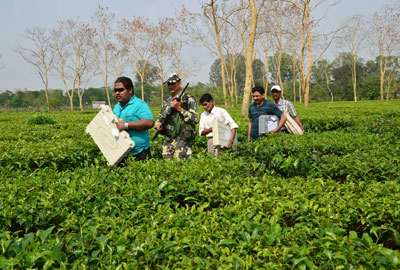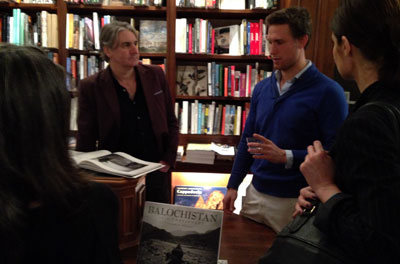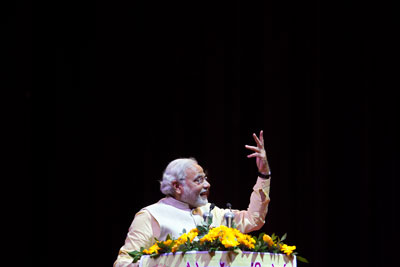Sumit Galhotra/CPJ Asia Program Research Associate
Sumit Galhotra is the research associate for CPJ's Asia program. He served as CPJ's inaugural Steiger Fellow and has worked for CNN International, Amnesty International USA, and Human Rights Watch. He has reported from London, India, and Israel and the Occupied Territories, and specializes in human rights and South Asia.
Q&A: Indian journalist Sudhir Dhawale discusses his release from prison
After languishing in jail for 40 months, Mumbai-based journalist and activist Sudhir Dhawale has walked free. Dhawale was the only journalist in jail in India in late 2013, according to CPJ’s annual prison census. With his release, there are currently no other journalists behind bars in the country for work-related reasons.
Ilham Tohti’s daughter fights for his freedom
At first glance, 19-year-old Jewher Ilham may seem like a typical college student. As she clutched her smart phone, the face of a cat imprinted on the cover peered through her fingers. She spoke in short sentences with little pause. Her thoughts pulled her in various directions as she spoke about her love for dance,…
In Bangladesh, journalist summoned for criticism of court
It’s not the first time, and it likely won’t be the last: Bangladesh’s International Crimes Tribunal has demonstrated little tolerance for criticism of its activities. Last week, the tribunal launched contempt of court proceedings against Dhaka-based British journalist David Bergman for his blog posts on the court.

Censorship in India on the rise amid elections
This month, Indians are voting in the largest election in history. It’s an exciting exercise in democracy, but it comes against a grim backdrop: censorship in the country is on the rise, according to a quarterly report by the South Asian media watchdog, The Hoot.

Blacklisted in Baluchistan
Pakistani Prime Minister Nawaz Sharif made a series of commitments to safeguard press freedom during a meeting with a CPJ delegation last week. Among them was a pledge to speak out in support of media freedom and against attacks on journalists, particularly in high-conflict areas like Baluchistan.
FCCC survey finds China abuses press card, visa process
The Foreign Correspondents’ Club of China (Beijing) published the findings of its annual visa survey last week. The findings are grim but come as no surprise following the Chinese government’s showdown late last year with members of the foreign press.

Modi’s rise does not bode well for Indian press freedom
As India is set to hold elections next month, journalists covering Narendra Modi, India’s right-wing prime ministerial candidate, are reportedly coming under increased pressure online and in the newsroom for shedding critical light on him. Given these developments, free and independent reporting of the campaign is in doubt–as is the future climate for press freedom…
No justice 3 years after Wali Khan Babar murder
Three years have passed since the murder of Geo TV journalist Wali Khan Babar in Karachi. While no justice has been found in Babar’s case, his death has not been forgotten. Journalists Beena Sarwar, Umar Cheema, and Malik Siraj Akbar along with CPJ’s Bob Dietz commemorated the anniversary of Babar’s death on Monday during a…
Shan Dahar’s death underscores impunity in Pakistan
After more than a week since journalist Shan Dahar’s death, it remains unclear whether he was killed in an accident or targeted for murder–and if targeted, why. The confusion serves as yet another example of how weak investigations and a lack of accountability have become the hallmarks of journalist killings in Pakistan.
A daughter’s plea for her father’s freedom in Vietnam
Next week, the Committee to Protect Journalists will be honoring four journalists from around the world at the International Press Freedom Awards, an annual recognition of courageous reporting. As the awardees from Ecuador, Egypt, and Turkey make the journey to attend the awards and benefit dinner at the Waldorf-Astoria in New York City on November…